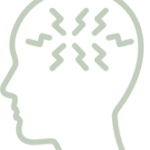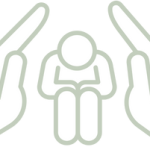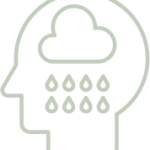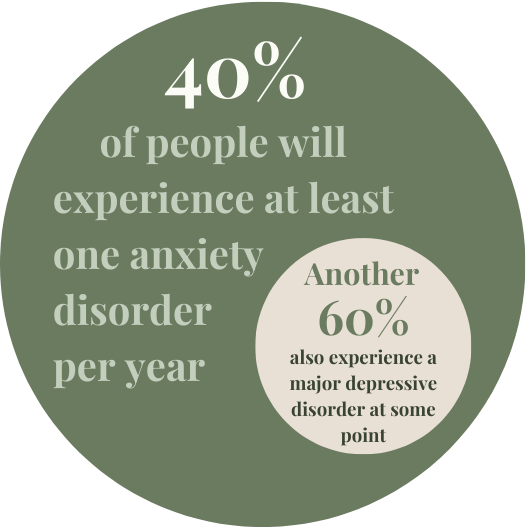What we treat
Anxiety & Stress
Constant feelings of stress or overwhelming feelings can often mask as Anxiety. We have specialized clinicians who can help.

What is Anxiety?
Anxiety is a persistent feeling of worry, fear, or unease, often about everyday situations, that can interfere with daily life. Unlike stress, which is a response to specific challenges, anxiety can occur even without a clear cause and may feel overwhelming or constant.
How can anxiety exist in your life?

Generalized Anxiety
Chronic worrying
Overthinking
Excessive fatigue
Restlessness
Sleep Impacts

Social Anxiety
Public speaking
Meeting new people
Social avoidance
Over-analyzing the past actions

Situational Anxiety
Performance anxiety
Travel or driving fears
Test-taking or stage fright

Physical-Somatic Anxiety
Panic attacks
Health anxiety or fear of illness
Psychosomatic symptoms (stomach, headaches, etc.)

Existential Anxiety
Fear of death
Feelings of meaninglessness
Future-focused fears ("what if...")
How does MMHC approach dealing with anxiety in your life? By meeting who you are & where you’re at in your personal anxiety journey with approaches tailored to your experience.

Parents & caregivers
Adults overwhelmed by stress
Teens & young adults with life transitions
Providing community and client education
Offering direct client services including group and individual therapy
Working specifically with your organization to educate and screen for needs

Individuals with past trauma
Professionals struggling with perfectionism
Unresolved issues from prior relationships
Providing personalized therapy to process past experiences
Supporting emotional growth through evidenced-based approaches like CBT and DBT

Individuals dealing with panic attacks or acute stress
Teens overwhelmed by academic or social pressures
Individuals navigating sudden life changes
In-person or virtual, real-time therapeutic support
Personalized treatment plan based on evidenced-based approaches like CBT, DBT or ACT
Education on long-term routines for sleep, exercise or nutrition
If you or someone you know is in immediate danger or experiencing thoughts of self-harm or suicide, please call 911 or go to the nearest emergency room. For 24/7 support, you can also reach out to the National Suicide Prevention Lifeline at 988 or chat online at 988lifeline.org.
What kind of evidenced-based tools & approaches do we use to treat anxiety?

Interpersonal Therapy (IPT). Focuses on improving interpersonal relationships and addressing social challenges contributing to anxiety.
Cognitive Behavioral Therapy. A structured, evidence-based approach focusing on identifying and changing negative thought patterns and behaviors contributing to anxiety.
Dialectical Behavior Therapy (DBT). A form of CBT that emphasizes emotional regulation, distress tolerance, mindfulness, and interpersonal effectiveness.
Medication Management. Prescribing anti-anxiety medications (like SSRIs or benzodiazepines) alongside therapy to help manage symptoms.
We’re here to help.
We have providers available for same-week scheduling to help you work through the right path for your care.
If there is anything we know best about anxiety: don't wait.

Did you Know?
• Not dealing with anxiety increases the risk of developing depression by 50-70%.
• Chronic stress increases the likelihood of heart diseases by 40-50% due to prolonged exposure to stress.
• 30-50% of individuals with untreated anxiety experience recurring panic attacks, which can escalate into panic disorders over time.
• Chronic stress increases the likelihood of heart diseases by 40-50% due to prolonged exposure to stress.
• 30-50% of individuals with untreated anxiety experience recurring panic attacks, which can escalate into panic disorders over time.

